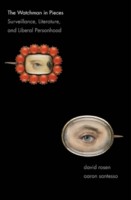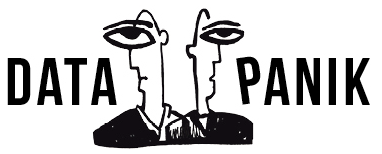PEN America sprak met David Rosen en Aaron Santesso, auteurs van het recent verschenen “The Watchman in Pieces”. In dat boek onderzoeken ze de banden tussen surveillance en literatuur van (niet schrikken) de afgelopen 500 jaar.
What authors should we be reading right now who will help us better understand surveillance in the digital age?
A former FBI agent we once talked with told us that he would have his new officers read Graham Greene (‘Our Man in Havana’, ‘The Human Factor’) in order to understand the pitfalls of surveillance. In addition, there are some great books about the psychological and moral cost of living under constant watch. Timothy Garton-Ash’s ‘The File’ is a modern classic in this line; going back, one might look at Conrad’s ‘Under Western Eyes’. But to take a wider view: one of our ambitions in the book was to steer the conversation away from obvious authors like Orwell, Huxley, or Zamyatin. Our view is that the key challenges of contemporary surveillance (both doing it and resisting it) center on interpretation, empathy, and understanding the world as a tangle of competing narratives. To negotiate this environment, there’s no better training than reading literature: not particular books, necessarily, so much as Literature with a capital L. Future debates about surveillance belong as much to PEN as to the ACLU or FCC.
Het interview eindigt met de vraag naar de rol die literatuur kan spelen.
We do believe that literature has the potential to counteract the worst abuses of surveillance—but not in a direct way. That is to say, there are, and always will be, excellent books about what it’s like to live under surveillance—and it’s also surely the case that the new world of dataveillance will be irresistible fodder for writers of fiction and non-fiction both. But we would say that the potential of literature to counteract the harm of surveillance is both deeper and broader than any specific, topical response. Behind much of the worst abuses we see today is a dangerous techno-determinism: it’s not people, it’s algorithms; this is just how the world is going; there’s no resisting Big Data. What literature does, more than anything else, is restore empathy, and bring back the human element. Behind every algorithm is a person who wrote it; every data-point is a person. In the new surveillance culture, we fear, technology will increasingly come to seem its own justification. Against this, the humanities (which explore what it means to be human) will be more and more necessary.
Tolkien en Big Brother
Een paar maanden geleden schreven Rosen en Santesso ook een bijdrage voor Slate. Daarin argumenteren ze waarom we beter Tolkien dan Orwell kunnen lezen om de hedendaagse controlemaatschappij beter te begrijpen.
Tolkien’s most potent and intimidating image of centralized surveillance, the Eye of Sauron atop a tower, taking in the whole world, has resonated with those who are paranoid about government monitoring. But it’s Sauron’s vulnerability that has the most relevance for America today. Consider the basic premise of Tolkien’s trilogy: a small group of dedicated subversives willing to sacrifice their lives slips in under the surveillance system of a great power, blends in with an alien population, and delivers a devastating blow to the heart of its empire, leaving its security forces in disarray and its populace terrified. Even a tower or two crumbles to dust. Far from being covert, much of this operation is conducted in plain sight, with the great power aware of its enemies’ existence, if not their intent. Given its prescience about modern-day terrorism, Tolkien’s vision offers at least three lessons for present-day America.
De drie lessen van Tolkien waar de auteurs het over hebben, zijn bondig samen te vatten:
- All-Seeing Is Not All-Knowing
- The Enemy Controls the Plot
- The Louder the Noise, the Fainter the Signal
Hun conclusie?
How to recognize the treacherous or psychopathic needle in the haystack? As recent months have proved, it’s not so easy. Our surveillance state, in contrast to Orwell’s, has had its share of failures. A dangerous assumption underlies many contemporary debates about government surveillance: the assumption of interpretive competence. Without diminishing the seriousness of the recent NSA revelations, Tolkien is finally more convincing about why total surveillance often fails than Orwell and his endless progeny are in imagining its inevitable success. That’s at once some small comfort and reason for concern.
The Eye of Sauron Is the Modern Surveillance State
—–
 Het boek “The Watchman in Pieces. Surveillance, Literature, and Liberal Personhood” is verschenen bij Yale University Press.
Het boek “The Watchman in Pieces. Surveillance, Literature, and Liberal Personhood” is verschenen bij Yale University Press.
Auteurs: David Rosen en Aaron Santesso
376 pag., isbn 9780300155419

